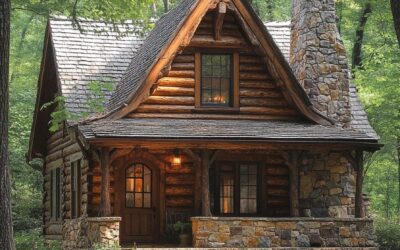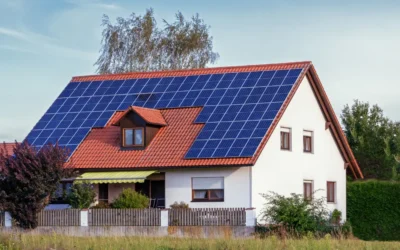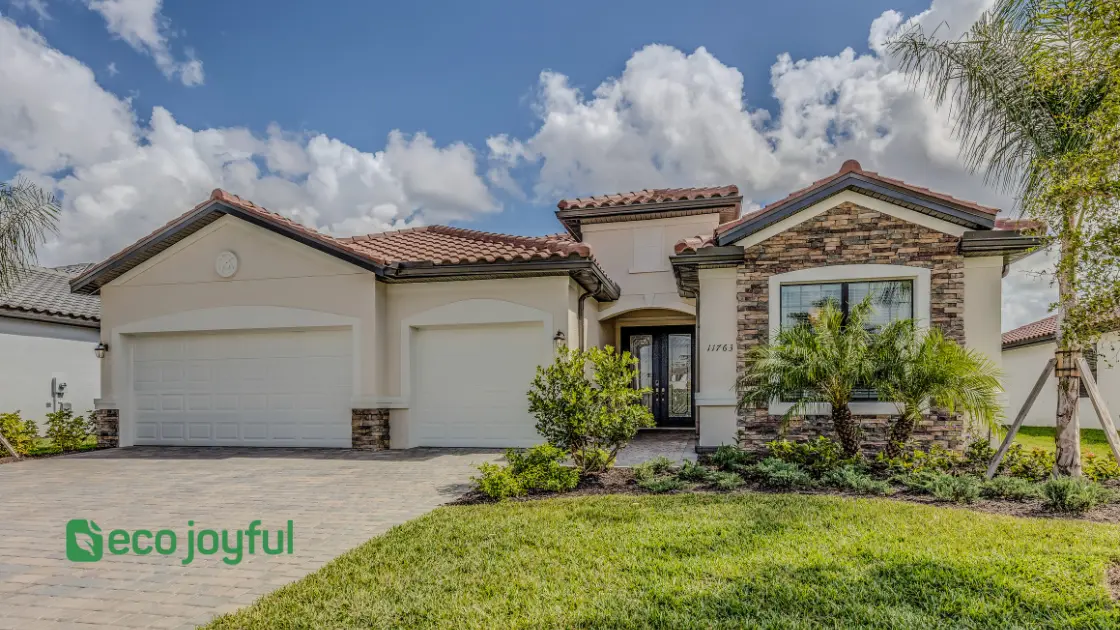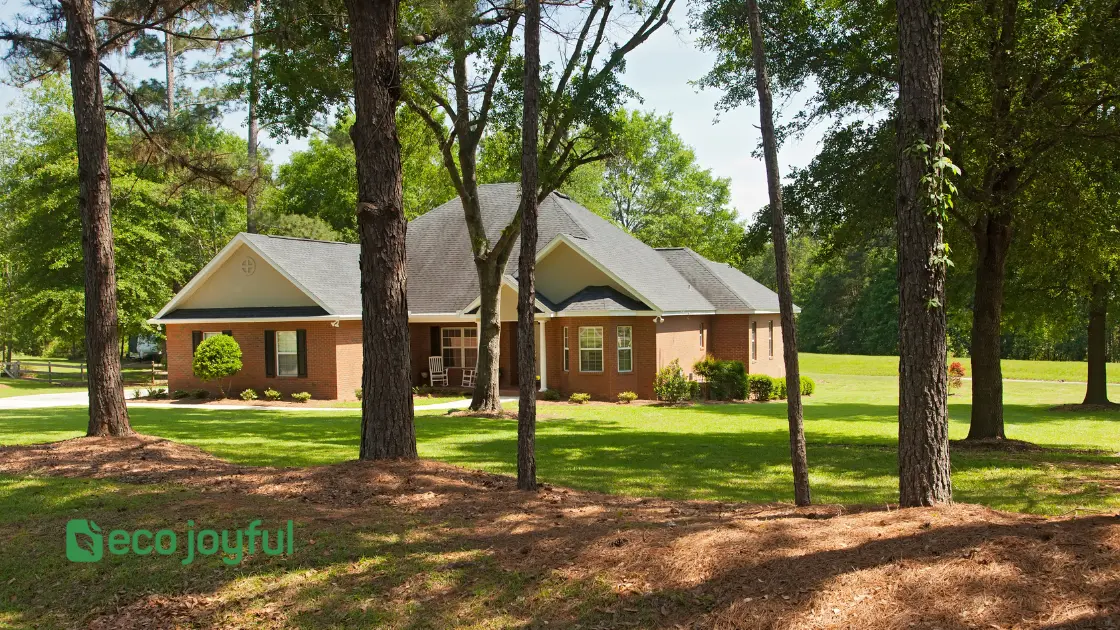Living off the grid in Arkansas is a sustainable lifestyle choice that offers independence from modern amenities and a closer connection to nature.
Benefits Of Living Off The Grid in Arkansas
Living off the grid in Arkansas offers numerous benefits, including self-sufficiency, reduced energy costs, and a connection with nature. With the ability to generate power and rely on sustainable resources, this lifestyle choice promotes independence and a simpler, eco-friendly way of living.
Environmental Sustainability
Living off the grid in Arkansas brings numerous benefits, starting with environmental sustainability. Living off the grid contributes to preserving the environment for future generations.
You significantly reduce your carbon footprint without relying on traditional energy sources that emit harmful greenhouse gases. Embracing renewable energy alternatives like solar panels and wind turbines allows you to generate electricity sustainably.

Living off the grid also encourages water conservation by reducing water usage through rainwater harvesting and recycling. These eco-friendly practices help protect Arkansas’s natural beauty and resources.
Financial Independence
Living off the grid in Arkansas also offers the advantage of financial independence. By disconnecting from public utility services, you free yourself from monthly bills and ever-increasing energy costs.
Instead, you invest in renewable energy systems that pay for themselves over time, resulting in long-term savings. You can eliminate or significantly reduce your monthly expenses with the proper setup and energy-efficient practices.
Moreover, living off the grid encourages a simpler lifestyle that prioritizes needs over excess, helping you build responsible financial habits and achieve financial freedom.
Self-sufficiency
Another benefit of living off the grid in Arkansas is ensuring self-sufficiency. When you’re self-sufficient, you take control of your basic needs, including food, water, and shelter.
By growing your organic vegetables, raising livestock, and practicing sustainable farming methods, you reduce dependence on commercial agriculture and make healthier choices.
Implementing rainwater collection systems and utilizing natural resources efficiently helps you become self-reliant for water needs.
Furthermore, living off the grid promotes using alternative building materials and construction techniques, allowing you to create a resilient and self-sustaining home that can withstand the test of time.
Challenges Of Living Off The Grid
Living off the grid in Arkansas offers a unique way of life, allowing individuals to disconnect from the modern world and embrace a more sustainable and self-reliant lifestyle.
However, this endeavor comes with its fair share of challenges. In this article, we will explore the key challenges faced by those who choose to live off the grid in Arkansas.
Limited Access To Modern Amenities
One of the primary challenges of living off the grid in Arkansas is the limited access to modern amenities that most people take for granted.
Disconnection from the utility grid means no direct connection to electricity, water, or sewage systems. Off-grid dwellers must find alternative solutions to fulfill these basic needs.
- Electricity: Off-grid residents use renewable energy sources such as solar panels or wind turbines to generate electricity. While this can reduce dependency on fossil fuels, it also demands careful planning and investment in reliable energy systems.
- Water: Access to clean water becomes crucial when living off the grid. Collecting rainwater or drilling wells are standard practices for obtaining water, but these systems require regular maintenance to ensure a steady supply.
- Sewage: Without a connection to the public sewage system, off-grid individuals often turn to composting toilets or septic tanks to manage waste. These systems call for regular upkeep and proper disposal methods.
Dependency On Renewable Energy Sources
Living off the grid in Arkansas means relying heavily on renewable energy sources to power daily necessities. This dependency can be both a challenge and an opportunity for those seeking a more sustainable lifestyle.
Renewable energy systems, such as solar panels and wind turbines, require upfront investment and maintenance to ensure consistent power supply.
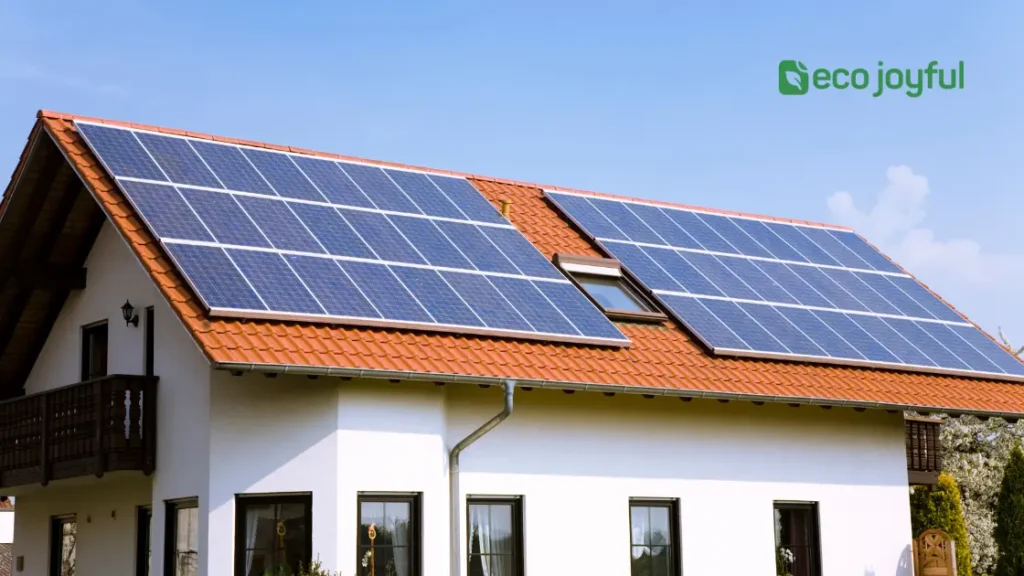
However, by harnessing the power of nature, off-grid dwellers can reduce their carbon footprint and decrease energy costs in the long run. Educating oneself about these energy systems is essential, and being prepared to manage any technical issues.
Maintenance And Upkeep
Living off the grid in Arkansas demands continuous maintenance and upkeep of various systems. Without the support of utility companies, off-grid residents become responsible for analyzing, troubleshooting, and repairing their infrastructure.
Regular attention is crucial to ensure these systems function efficiently, from maintaining solar panels and batteries to managing water filtration systems and composting toilets.
Additionally, it is essential to have backup plans and alternative solutions in place to overcome unexpected failures or emergencies.
In conclusion, while living off the grid in Arkansas offers the appeal of a simple and sustainable lifestyle, there are challenges to consider.
Limited access to modern amenities, dependency on renewable energy sources, and the requirement for ongoing maintenance necessitate a proactive mindset and a willingness to adapt.
Despite these challenges, many find the rewards of self-sufficiency and environmental consciousness worth the effort.
Tips For Successful Off-grid Living In Arkansas
Living off the grid in Arkansas can be a rewarding and sustainable lifestyle. Here are some tips to help you succeed in this self-sufficient way of living.
Living off the grid in Arkansas can be an exhilarating and rewarding experience. However, it requires careful planning and implementation of essential systems to ensure a sustainable and comfortable lifestyle.
This section will explore some valuable tips to help you succeed in your off-grid journey in Arkansas. From choosing the right location to installing solar panels and implementing sustainable water and waste management systems, we’ve got you covered.
Choosing The Right Location
When it comes to off-grid living in Arkansas, selecting the right location is crucial for your long-term success. Here are a few factors to consider:
- Access to sunlight: Ensure your chosen location receives ample sunlight for solar energy production throughout the year.
- Water availability: Look for areas with access to freshwater sources, such as rivers, lakes, or underground aquifers.
- Proximity to amenities: While living off the grid offers a sense of seclusion, it’s essential to find a location within reasonable distance to amenities like grocery stores, healthcare facilities, and schools.
- Climate considerations: Arkansas experiences diverse weather throughout the year, so understand the local climate and its impact on various off-grid systems like heating and cooling.
Installing Solar Panels And Other Renewable Energy Sources
Incorporating renewable energy sources like solar panels is vital for sustainable off-grid living in Arkansas. Here’s what you need to know:
- Solar panel installation: Hire professionals to install solar panels on your property, ensuring they are correctly positioned to maximize sun exposure.
- Battery storage: Invest in high-quality batteries to store excess solar energy during cloudy or nighttime, ensuring a consistent power supply.
- Backup generator: Consider having a backup generator as an extra power source during extended periods of low sunlight or high energy demand.
- Explore other renewables: Consider integrating other renewable energy sources like wind turbines or hydroelectric systems, depending on your location and resources.
Implementing Sustainable Water And Waste Management Systems
Implementing sustainable water and waste management systems is essential for off-grid living in Arkansas. Here are some key considerations:
- Rainwater harvesting: Install rain barrels or tanks to collect rainwater for various uses like gardening, cleaning, and even drinking when adequately filtered.
- Water filtration: Invest in a reliable system to ensure clean, potable water for daily consumption.
- Composting toilets: Consider using composting toilets to manage human waste efficiently without relying on traditional septic systems.
- Greywater recycling: Implement a system that allows the recycling of greywater from sinks, showers, and washing machines for irrigation purposes.
By carefully considering these tips while planning your off-grid lifestyle in Arkansas, you can enjoy the freedom and sustainability of living off the grid.
Remember, staying adaptable and continually improving your systems is essential to ensure a successful and comfortable off-grid experience.
Conclusion
Living off the grid in Arkansas offers a unique lifestyle, disconnected from the hustle and bustle of modern society. Embracing self-sustainability and a back-to-nature approach, residents can experience the beauty of simplicity and a deeper connection to the environment.
With abundant natural resources and a supportive community, Arkansas provides the ideal backdrop for those seeking a more balanced and sustainable way of life.
Immerse yourself in the tranquillity and empowerment of off-grid living in Arkansas today. Join a growing movement and discover a new way of being.



